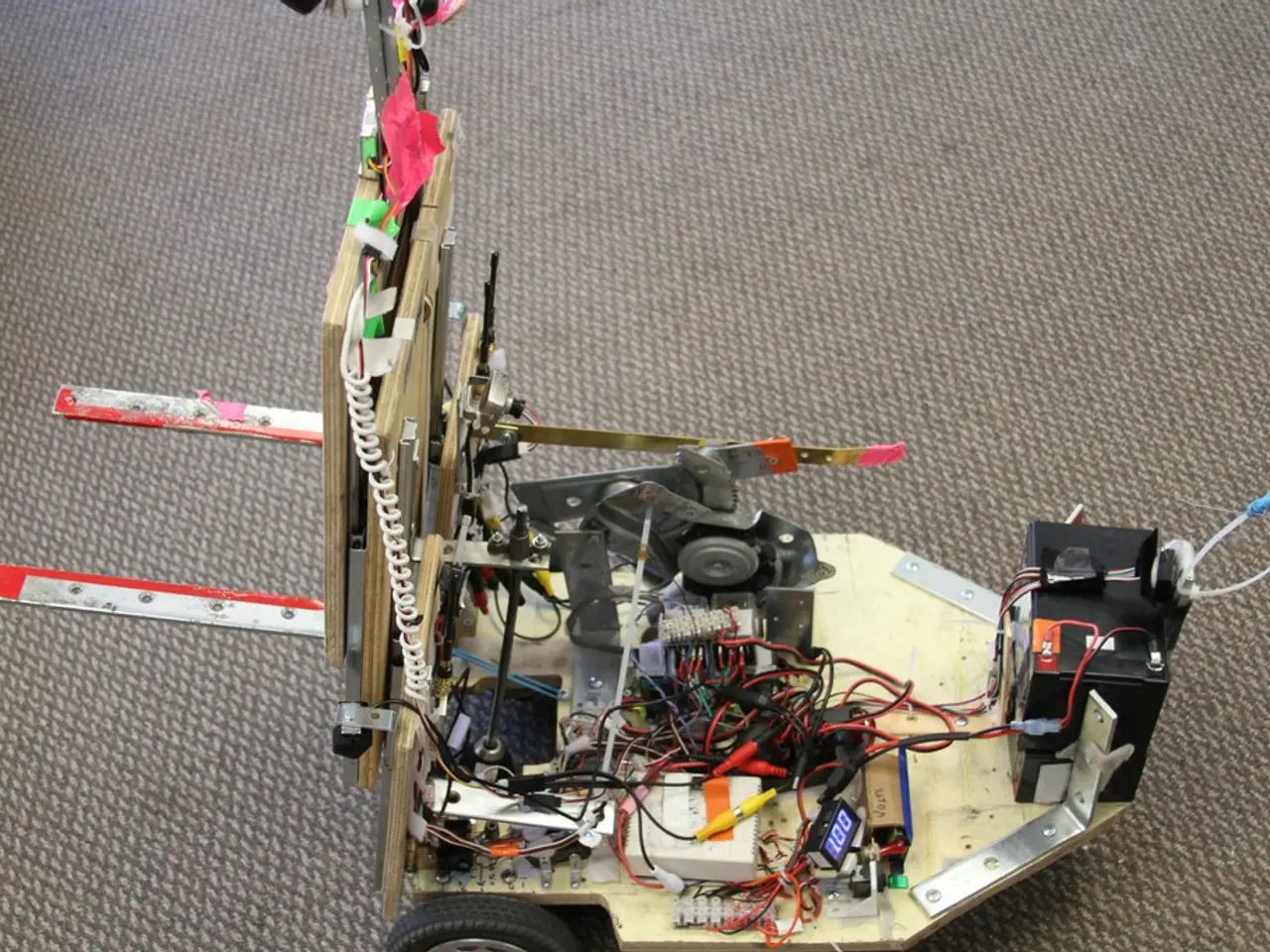Chorea and Huntington's disease: A breakdown of their disparities
===============================================================================
Chorea, a neurological condition characterized by involuntary, random, and continuous movements, is often associated with Huntington's disease. However, it's essential to understand that chorea is not exclusive to Huntington's disease. This article explores various conditions that can cause chorea, including Huntington's disease, and the treatments available for managing the condition.
While most cases of Huntington's disease result in chorea, it's crucial to distinguish between the two. Huntington's disease is a rare, inherited disorder that affects approximately 30,000 people in the United States, with an estimated 200,000 more at risk. The disease has a 50% chance of being passed down from a biological parent.
Chorea in Huntington's disease occurs due to overactivity in the basal ganglia, the part of the brain that controls movement. Other symptoms of Huntington's disease include impaired judgment, forgetfulness, unsteady gait, difficulty talking, trouble eating and swallowing, depression, changes in personality, mood swings, weight loss, and more. Not everyone who develops chorea due to Huntington's disease may be aware of the symptom.
Besides Huntington's disease, chorea can also occur in several other conditions. For instance, Tardive dyskinesia, a movement disorder caused by long-term use of dopamine-blocking drugs such as antipsychotics or metoclopramide, features involuntary movements often in the face and sometimes the limbs and trunk. Sydenham chorea, a neurological disorder typically seen in children and adolescents following streptococcal infection, is characterized by rapid, involuntary movements similar to chorea. Wilson disease, a rare genetic disorder affecting copper metabolism, can produce choreiform movements along with other neurological symptoms.
Drug-induced chorea, caused by certain medications including levodopa, anticonvulsants, and antipsychotics, is another condition that can cause chorea. Chorea can also rarely occur due to involvement of the nervous system in systemic lupus erythematosus (SLE) and other autoimmune diseases.
In the case of Huntington's disease, treatments focus on helping a person find symptom relief with medications and therapy. Tetrabenazine (Xenazine) and deutetrabenazine (Austedo) are medications that may help manage chorea in Huntington's disease. A doctor may also prescribe antipsychotic medications for involuntary movements. Physical or occupational therapy may be recommended to help a person develop additional muscle strength and learn to move around safely.
It's important to note that there is no cure for Huntington's disease. Following the onset of symptoms, a person with Huntington's disease may live for another 15-20 years as the disease progresses. Therapists may work with family members or caregivers to help set up a safe home environment.
In conclusion, chorea is a symptom seen in diverse neurological and systemic disorders besides Huntington's disease. Understanding the various conditions that can cause chorea is crucial in early diagnosis and effective management of the condition. If you or someone you know exhibits symptoms of chorea, it's essential to consult a healthcare professional for a proper diagnosis and treatment plan.
- Science has been examining the relationship between Huntington's disease and other medical conditions that cause chorea, such as Tardive dyskinesia, Sydenham chorea, Wilson disease, and drug-induced chorea.
- While CBD is not traditionally associated with the treatment of neurological disorders like Huntington's disease, ongoing research in the field of health and wellness could potentially reveal new avenues for management and care.
- In addition to managing chorea with medication and therapy, doctors may also suggest treatments for the other neurological symptoms of Huntington's disease, such as impaired judgment, emotional changes, and changes in personality.




